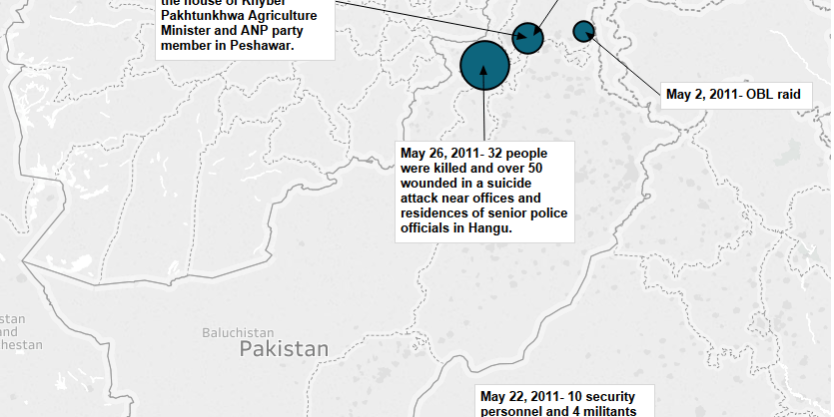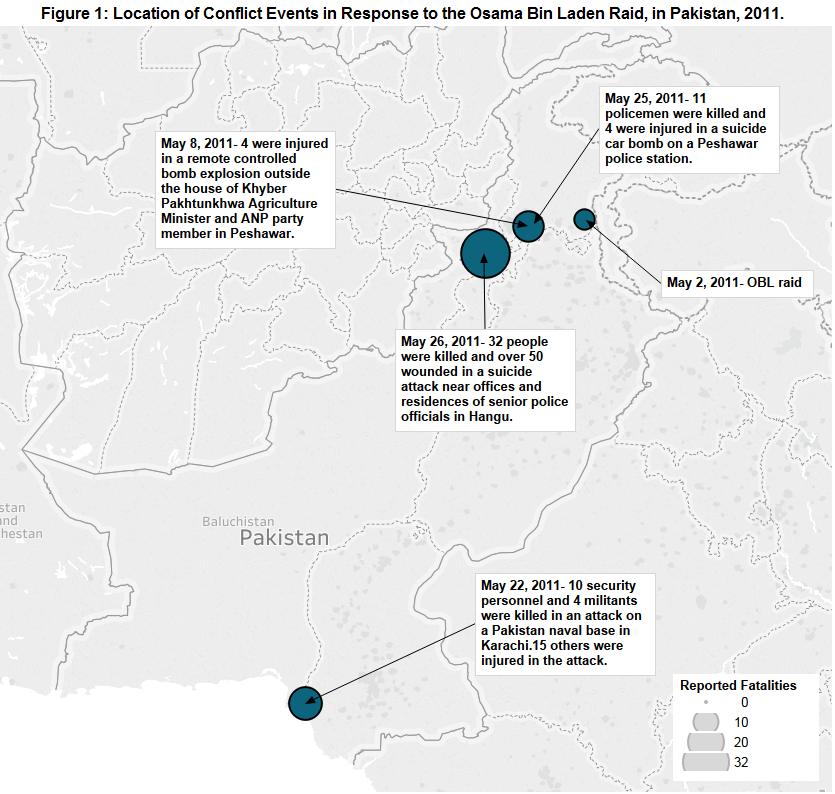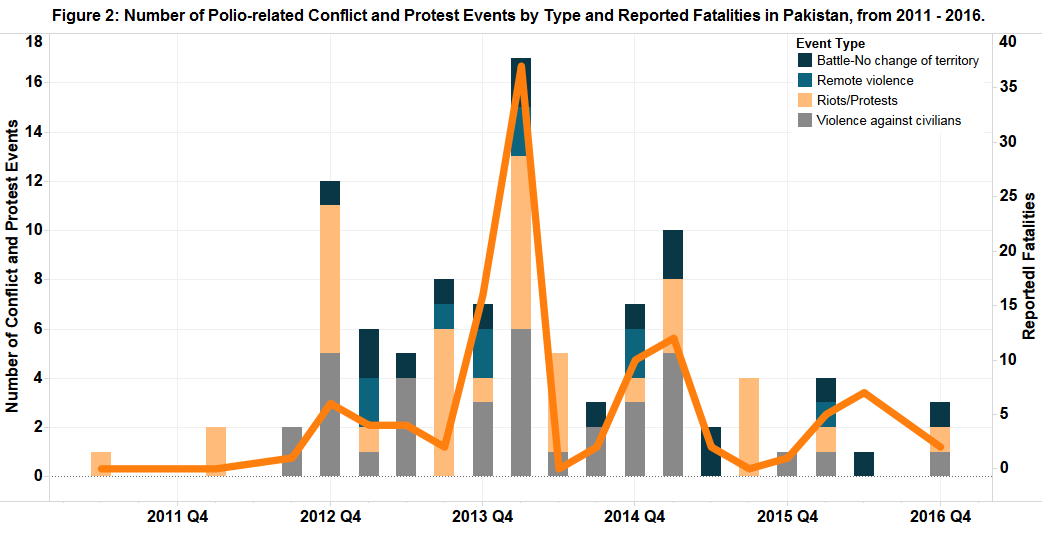Operation Neptune Spear was a US offensive aimed at capturing Osama Bin Laden (OBL). It was launched out of Afghanistan and carried out in Abbotabad, Pakistan in the early hours of May 2, 2011. The operation was successful, and has had both short and long-term effects on the political, social, and military landscape of Pakistan. The operation not only put into question Pakistan’s role in harbouring the world’s most wanted man, but also unravelled Pakistan’s narrative of the War on Terror. In addition to changes in global relations as well as relations with militant groups active in Pakistan, an unintended consequence of the operation has been the inability to curtail the spread of polio due to the connection between vaccination programs and the OBL raid.
The operation resulted in 5 fatalities on Pakistani soil (including OBL) and the capture of key Al Qaida informants including wives and children of OBL. Pakistani intelligence and military organizations claim to have been blind-sided, both by the presence of OBL on Pakistani soil, as well as by the raid itself. The fallout from the raid was both international and local: internationally, already difficult relations between the USA and Pakistan were further reduced. There was no communication for the months that followed the raid, and a closure of supply routes for NATO troops in Afghanistan (Spiegel Online 12 May 2012).
On a local level, the immediate consequence was several retaliatory attacks by the Tehreek-i-Taliban (TTP) and affiliates on civilians and military officials alike. Between May 8th and May 26th in 2011, the TTP and affiliates carried out attacks in Karachi and the state of Khyber Pakhtunkhwa (see Figure 1), resulting in 63 fatalities. These attacks including three bombings and one battle at a Naval Air Base.
Civilian protests emerged around the issue. The main opposition comes from religious political parties, particularly the Jamaat Ulema-e-Islam (JUI) and Jamaat-e-Islami (JI). Both parties protested in Quetta and Peshawar after the raid, demanding explanations as to how Pakistani sovereignty was challenged, and claiming OBL as a martyr (The Express Tribune, 6 May 2011). The JUI, JI, and their affiliates are some of Pakistan’s largest political parties, with strong Wahabi, Sunni Muslim roots, and indirect links to militant groups in the country.
Pakistan has also faced a spread of the poliovirus since the raid. Vaccination programs in the nation are routinely threatened and attacked by militant groups due to their connection with the OBL raid. The CIA covert mission to locate OBL included a fake immunization program that managed to collect DNA samples proving that those living in the compound were OBL’s kin. When this information was released, there was local distrust of vaccinations and blow-black by militant groups. Before the raid, there were no attacks on polio vaccination teams in the country, who never travelled with security. However, since May 2011, militant groups have killed a total of 111 polio-vaccinators, their team members, or those providing security. The TTP has carried out most of these attacks, but Jamaat-ul-Ahrar and Jandallah have also claimed responsibility for such attacks (see Figure 2).
Further, local anti-American sentiment and the revelation that the OBL immunization program was fake, led to a distrust of vaccination drives. Parents were unwilling to take their children to be immunized. There is the additional fear that anywhere polio-vaccinators are seen, there is a chance of violence breaking out, leading to low event turnout. Furthermore, the lack, and misappropriation, of funds means that workers are often not paid, leading to strikes and nation-wide protests. Since May 2011, 37 protests have taken place in every province in Pakistan over lack of security and funds provided to polio-vaccination teams across the nation.
The capture of Osama Bin Laden changed several gears for the Global War on Terror, and its impact on Pakistan cannot be understated. From affecting the nation’s international relations, to local socio-health programs, the raid on 2 May 2011 changed not only the lens through which Pakistan was perceived by the rest of the world, but it also forced Pakistan to change internal policies and contributed greatly to the growing violent landscape of the state.







